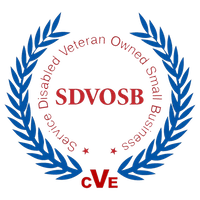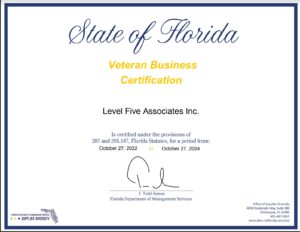“Doing the Right Thing When No One’s Looking”: This is the fifth in a series of blogs on adaptive leadership.
It is my belief that foundational leadership principles give leaders the ability to build teams capable of handling whatever might come their way. This series is based around what we at Level Five Associates have as one of our foundations: “The Big Six.”
The Big Six are the result of years of personal experience and observation of what make great teams work.
Part of what we consider so important about The Big Six Leadership Principles® is a belief that these concepts are, essentially, universal and unchangeable.
The underlying principles are always the same, giving us as leaders a foundation to build resilient — and adaptable — teams.
What’s Your Moral Compass?
The fourth of the Big Six is: Doing the Right Thing When No One’s Looking. It’s more important than ever that we adapt to the environment that we’re in, the world we’re in, and remember to do the right thing even when the boss’s back is turned. Do we have a moral compass? 
A key part of accomplishing this, I believe, entails being vulnerable.
I think people want to do the right thing more often than not, but sometimes they’re afraid because they may not succeed in the attempt. But if you’re willing to admit that you yourself don’t know all the answers, that you sometimes need some help (and that you’ve even screwed this up yourself in the past!), that’s going to make a big difference.
I think it’s going to help team members understand that there may be some failures when trying to do the right thing—failures we’re going to underwrite—and instead of asking questions like “What were you thinking!” we need to ask helpful questions of each other when things don’t go well. Questions such as, “Okay, so what did we learn?” There’s a huge difference between those two questions.
By accepting failure as a learning opportunity, we become more of a learning organization and people are going to want to do right.
I’m convinced that it’s extremely rare to find people who really want to do wrong, who want to harm others, who want the organization to fail. Certainly I don’t think people want to fail in our current environment. They’re uncertain and fearful, but I think in many ways we’re all anxious about the future.
If we believe in each other, however, and we believe in doing right, and we espouse that, not seven times but maybe 70 or even 700 times, people are going to want to belong. I believe that wanting to belong is one of the most powerful elements of human interaction. We all want to belong.
Our organizations can strive to have the unique ability to “fail forward” — to learn from our mistakes versus finding someone to blame. The positive, team-oriented, “do the right thing” attitude is the kind of culture that you must nurture, now more than ever.
It’s very important to support doing right by friends and family, too. As the lines between home and work blur, the importance of family is more evident. Teams may become more of an extended family both to individuals and to the organization. It’s important to honor and respect the role of family and to take a fresh look at where our values and priorities lie.
(As an aside, this all goes back to the Azimuth. We might have our own personal moral compass, but our organization requires one of its own: a values-oriented mission. This is vital, if we are to empower our team members to be adaptable and do their best work. In short: if things seem “off,” go back to the Azimuth and see if it is being followed, or if it needs revision.)
By putting our moral compass first, by being willing to be vulnerable in some situations, we can make ourselves examples as leaders. Being moral examples can inspire the best work and behavior out of all our team members.

This blog is based on my eBook “Who Saw This Coming?” You can get a free downloadable copy of the entire eBook here.
Enjoy the Journey!
Did you find this blog post beneficial? If so, please consider sharing it with your audience using one of the choices below. It’ll just take a second, but could improve someone’s work habits for a long time to come.





